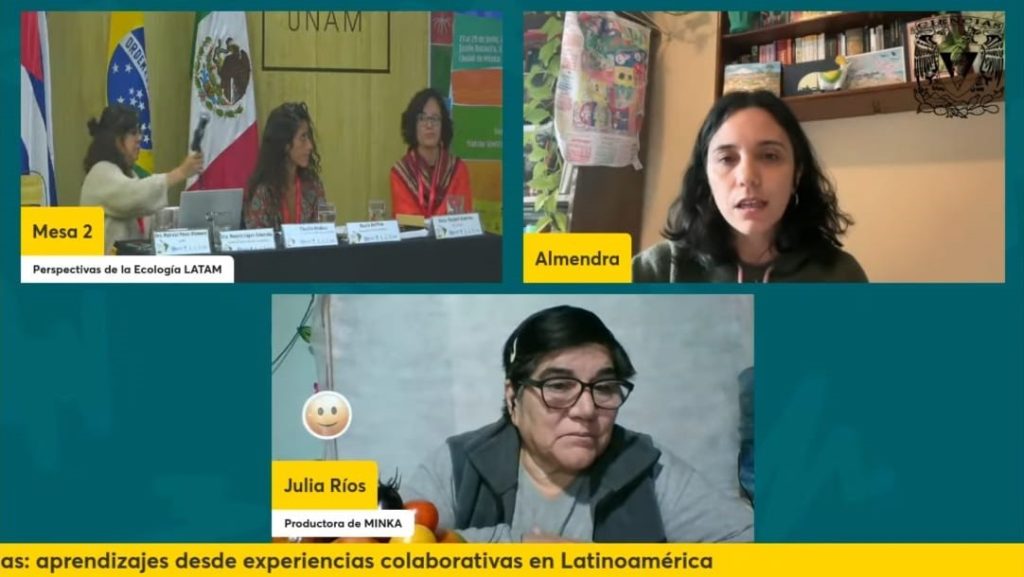
As part of the International Colloquium on Perspectives on Ecology in Latin America (see more), Bioleft participated in the roundtable discussion “Towards shared sustainability: lessons learned from collaborative experiences in Latin America,” reflecting on the challenges and lessons learned around the exchange and improvement of open seeds in Argentina.
From Argentina, Almendra Cremaschi (director of Bioleft), Julia Ángela Ríos, and Paula Delfino (Bioleft-Minka producers and evaluators) shared an experience that not only recovers native seeds, but also connections, knowledge, and possible horizons.
“We discovered that before discussing appropriation, we had to ask ourselves what seeds are being produced and for whom,” explained Almendra Cremaschi, recounting the origins of Bioleft in 2018, in response to attempts to reform the Seed Law that favored corporate appropriation.
Building on that momentum, networking with family farmers and organizations such as Minka made it possible to consolidate a fairer system based on collaboration and knowledge sharing.
From her community seed bank, Julia Ríos enthusiastically described the process of recovering native varieties:
“Two years ago, we started working with Bioleft. It was a very productive experience. We rescued flavors and shapes that were thought to be lost. I worked with five varieties, and the one I liked best was No me olvides, a tomato with a lot of flavor and excellent yield.”
Julia collaborates with schools, universities, and other producers to spread knowledge and promote the use of agroecological seeds:
“We felt that they were being lost, that there was no production… and that’s why we decided to organize ourselves.”
Paula Delfino, also a member of Minka, offered a critical and powerful perspective on the role of women producers in generating knowledge:
“We are not just objects of study. We are also creators. We sow, we care, we learn, and from there we also do science.”
She emphasized that participatory improvement not only allows for seeds adapted to real contexts, but also revalues a task that is often invisible:
“The meetings between producers, gardeners, and technicians allow us to say again: what we do has value, we are taking care of the food of the people.”
She also proposed a complex and inclusive view of what it means to “improve” a seed:
“We are not only looking for yield or aesthetics. For us, flavor, resistance, the growing cycle, and the possibility of producing without agrochemicals are also important. Because seeds are not just a commodity: they are culture, history, and territory.”
Both pointed out the challenges they face on a daily basis: the impact of climate change, the advance of agribusiness, difficulties in accessing land, and job insecurity. However, they agreed that strengthening networks such as Bioleft is a form of active, collective, and transformative resistance.
The closing remarks were influenced by an intergenerational and feminist perspective:
“The seed houses we build,” said Paula, “are sacred spaces. And young people have a key role to play there: recovering knowledge, reinterpreting it, and continuing to sow the seeds of the future.”
🌱Watch the full presentation on YouTube
🌎More information about the event on the official website of the 2025 Colloquium